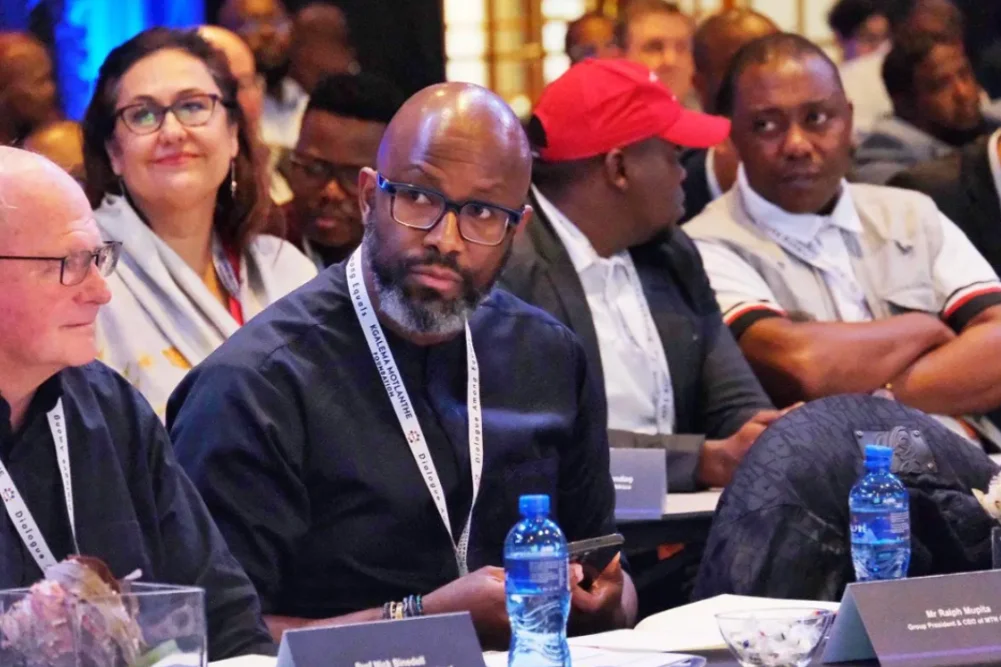MTN Group Calls for Urgent Investment in AI, Infrastructure, and Skills to Drive Inclusive Growth in Africa
Artificial intelligence (AI) is emerging as one of the most transformative technologies of the 21st century, and for Africa, it could be the key to driving inclusive and sustainable growth. However, according to MTN Group, the continent must act with urgency to avoid falling further behind and creating a digital underclass.
Speaking at the Kgalema Motlanthe Foundation (KMF) Inclusive Growth Forum, MTN Group President and CEO Ralph Mupita emphasised that Africa must be “obsessed and paranoid about not being left behind” in the global AI race.
He outlined six critical action areas to ensure Africa’s successful participation in the AI-driven global economy.
1. Powering AI Through Sustainable Energy Investment
AI adoption requires a reliable and abundant electricity supply. The International Energy Agency (IEA) estimates that achieving Africa’s energy and climate-related goals by 2030 will require over US$200 billion in annual investments.
Mupita warned that as data centre energy demand continues to rise globally—potentially tripling by 2030—Africa must invest significantly in its energy and digital infrastructure to support data processing and AI development.
Currently, Africa accounts for less than 2% of global data centre capacity, highlighting the urgent need for investment in data centres, fibre networks, and subsea cables.
2. Bridging Africa’s Digital Infrastructure Gap
According to the International Telecommunication Union (ITU), Africa will need around US$96 billion by 2030 to close its digital infrastructure investment gap.
Mupita emphasised that without this foundation, Africa cannot effectively leverage AI to drive economic inclusion. “We need to invest heavily in digital infrastructure, beyond fibre and subsea cables, to create a connected and intelligent Africa,” he said.
3. Building African Large Language Models (LLMs)
Africa must also accelerate the creation of indigenous large language models (LLMs) that reflect its linguistic and cultural diversity. With over 2,000 distinct African languages, fewer than 2% are supported by mainstream AI models, limiting AI’s accessibility and local relevance.
Mupita referenced ongoing efforts like the Nigerian Atlas for Languages & AI at Scale (N-ATLAS)—an open-source multilingual LLM launched to support the understanding and generation of Nigeria’s diverse voices. He noted that MTN Group supports initiatives that collect African language datasets and fund academic research to make AI more inclusive and representative.
4. Developing Africa’s AI and Digital Skills
Africa’s future workforce represents a major opportunity. Mupita stressed the need to develop strong AI and digital skills to enable the continent’s youth to thrive in a rapidly changing job market.
By 2030, sub-Saharan Africa is projected to create 230 million digital jobs, and by 2050, it will have the world’s largest workforce.
“This is an opportunity to enable Africa’s rich pipeline of youth,” said Mupita, adding that AI can serve as a tool to solve Africa’s unique challenges, particularly in healthcare, education, and agriculture.
5. Combining Traditional and Generative AI for Impact
Mupita called for the integration of traditional AI and generative AI to unlock the greatest value across key sectors. For Africa, AI represents more than just automation—it’s a strategic enabler for tackling systemic challenges such as limited healthcare access, food insecurity, and education inequality.
By leveraging both traditional and generative models, Africa can build localised solutions that directly address the continent’s development priorities.
6. Building Strong Partnerships for African AI
To transform ambition into reality, Mupita emphasised the importance of collaboration across the public, private, and civil sectors. “To give African AI initiatives scale and joint success, governments, the private sector, and civil society must partner on policy, data governance, and skills development,” he said. “And we must do this without delay.”
A Call to Action for Africa’s AI Future
MTN Group’s message is clear: Africa cannot afford to be a passive observer in the AI revolution. The continent must invest boldly in infrastructure, skills, and indigenous AI ecosystems to ensure that artificial intelligence drives inclusive growth, not inequality.
With the right strategy and partnerships, AI could become one of Africa’s greatest assets—empowering its people, industries, and economies for decades to come.







